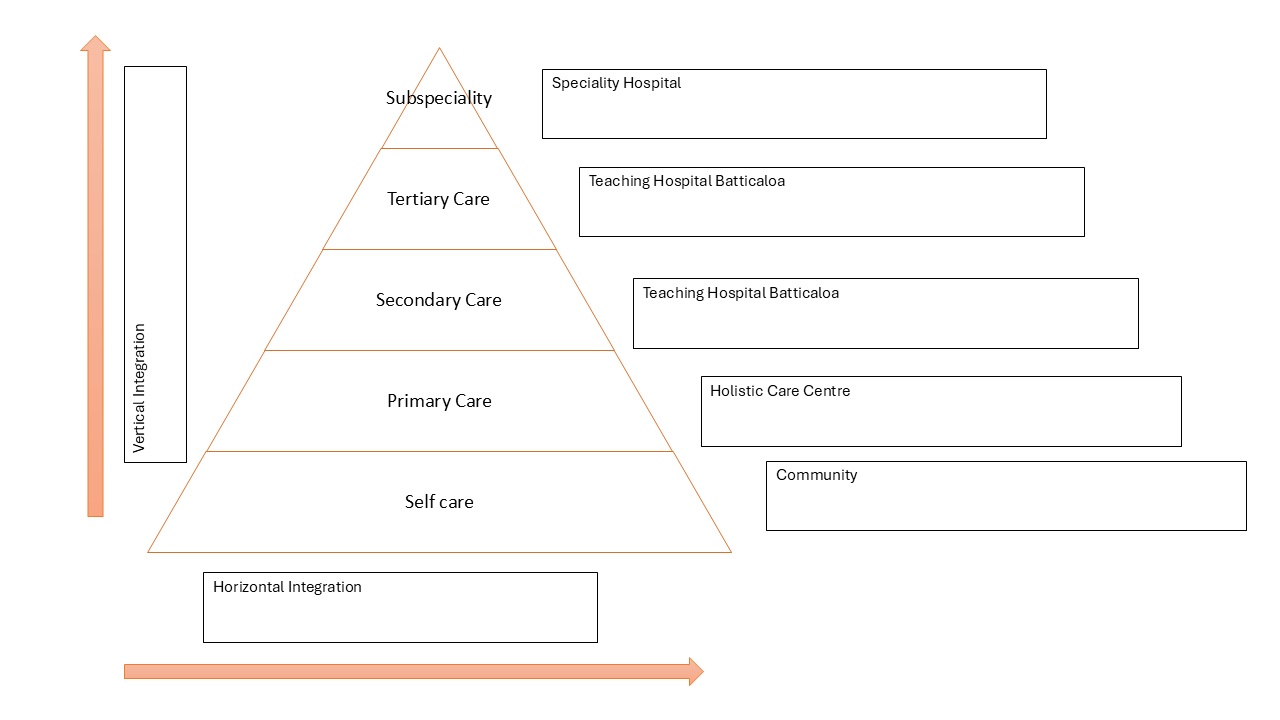University Family Practice Centre
Family Medicine at the Faculty of Health-Care Sciences
Since inception of FHCS in 2005, Family Medicine has been a key component of the undergraduate medical curriculum. It is integrated with Community Medicine under the Department of Primary Health Care, offering a unique and holistic approach to primary care education.
Family Medicine focuses in equipping future healthcare professionals with the skills to deliver patient-centered, community-focused care, reflecting the faculty’s commitment to comprehensive healthcare training.
Training in Family Medicine
3rd and 4th-year medical students undergo structured training through a comprehensive 16-module system, which includes a dedicated Family Medicine module. This module focuses on imparting the core principles of Family Medicine, ensuring students gain a strong foundation in patient-centered care.
Family Medicine and Community Medicine are deeply intertwined, with both disciplines complementing each other across the curriculum. The analysis and application of Family Medicine principles are embedded in almost every module, ensuring a seamless blend of clinical practice and community health.
Practical Exposure and Assessment in Family Medicine
Students gain hands-on experience in Family Medicine through various programs such as the Primary Health Care Clerkship, Family Attachment Program, and Community Attachment Program. They visit clinical settings including the University Family Practice Centre (HCC), PMCU Thiraimadu, Divisional Hospital Chenkalady, and other general practice centers. Students also actively engage in home-based care and community activities, reinforcing their practical skills.
Assessment:
- End-module exams include 15 MCQs and 2 SEQs on Family Health.
- These scores contribute to the Phase 2 Part 2 Exams, which also have a dedicated Family Health component, ensuring continuous evaluation of students' knowledge in this essential field.
Holistic Care Centre
(Opened in September 2022)
The Holistic Care Centre is a two-storey building serves dual functions, with academic activities housed on the first floor and healthcare services delivered on the ground floor.
We focus on integrating care across multiple levels of healthcare, disciplines, and staff, with the patient at the heart of everything we do. Our approach is centered on providing holistic care, ensuring that patients receive comprehensive and coordinated services.
The centre features a novel model of primary care delivery, the 'Integrated Care Pathway', which guides the design and implementation of all our services, setting a new standard for primary care in the region.
ICP – Click here
One of the main aims of the newly formed Integrated Care Pathways (ICPs) model is to improve population health and health care, establishing care pathways for patients by devolving responsibility to local systems to ensure the care they provide is based upon their local populations’ health and care needs. The success of the ICPs in achieving this aim will depend on the collaboration of primary, secondary, tertiary and specialist care with community-based, voluntary partners and local authorities, who are responsible for public health and social care.

ICP model and Functions of HCC
|
Clinical activities |
Examples |
Integration |
|---|---|---|
|
Institution based care |
|
Horizontally community people are given primary care consultation services looking into all medical problems, as well as social,mental and spiritual problems. Lifestyle modification are done through customised health promotion sessions. Thus horizontally integrated across disciplines, various health professionals, and community services. Vertically integrated across levels of care by referring people for further investigation and management to consultant specialists at secondary, tertiary or specialist hospitals. |
|
Home based care |
|
During the health team visit, the patients and families are given comprehensive care by horizontally integrating all disciplines, all problems and across various health professionals. Vertically integrating by referring the identified people to primary care and then to other levels of care. |
|
Community activities |
|
During the community screening and awareness programmes, the individuals are screened for various disease conditions and other social and mental issues in their community. A mass level customised health promotion sessions are delivered for life style modification at the same time. Thus horizontally integrated with various disciplines, health professionals and community services and referred apppropriately across levels of care for vertical integration. |

